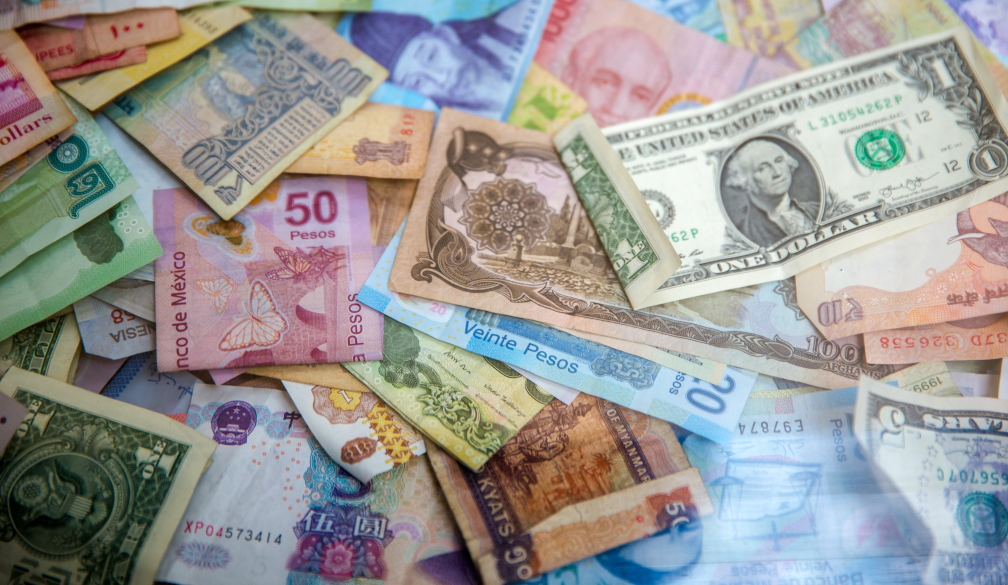Australians losing on international transfers

New analysis compares local bank fees with US, UK, Canada and NZ
Despite the current volatility across the global economy, international money transfers are continuing to rise and are expected to reach $244 trillion this year.[1] Now, a new analysis comparing international money transfer costs through banks in Australia, UK, the US, Europe, Canada and New Zealand has found an average wire fee and exchange rate markup of 2.42 per cent, costing customers from $214-470 on a $10,000 payment transfer.
The analysis was carried out by Money Transfer Comparison, a global comparison website that compares 60 global money transfer services to find individuals and businesses the most suitable and cost effective service for their needs.
The full analysis can be found here: https://
Methodology
The Money Transfer Comparison analysis compared wire fees (advertised, as well as hidden) and applied foreign exchange mark-ups when transferring money to a selection of overseas markets from major banks in Australia, UK, the US, Europe, Canada and New Zealand. Each country analysis examined foreign exchange mark-ups for a different set of currency conversions.
Australia
When compared with the UK, US, NZ, Canada and Europe, money transfer costs in Australia rank somewhere in the middle. Thankfully, Australian legislative requirements mean our banks have the highest level of transparency around transfer fees and mark ups.
Money Transfer Comparison compared fees and costs across ANZ, Macquarie Bank, Commonwealth Bank, NAB and Westpac. While these banks apply relatively modest transfer fees, the foreign exchange margins they apply (3.5 per cent, on average) are higher than those applied, on average, by US banks. This average is largely driven up by the Commonwealth Bank, which charges a hefty mark-up of up to 4.81 per cent. Macquarie Bank (serviced by OFX) offers the best value. For example, an exotic currency such as Pakistan (PKR) attracts a 4.58 per cent mark-up with Westpac, but just 2.3 per cent with Macquarie Bank.
The analysis also found that when transferring money with the banks, online is cheaper (around $10) than in-branch or over the phone (around $30). ANZ and Macquarie are the best value for sending payments over $10,000, as they do not charge transfer fees.
The UK
The analysis found the UK has the lowest transfer fees globally. The UK was one of the first countries to offer safe, secure and credible alternatives to banks for international money transfers, and therefore some major banks lowered their fees to stay competitive.
Money Transfer Comparison compared fees and costs across up to seven banks including Barclays, HSBC and Lloyds. Standard online wire transfer fees average £12.78 (AUD$22.85), while Australian fees average at AUD$22. This is in stark comparison to US banks (see analysis below), which average of USD$41 (AUD$64.76) across six major US banks.
The US
The best option for customers looking to transfer money from the US is Bank of America, which charges no fees on payments sent in a foreign currency, and applies the lowest exchange markup of the banks across the analysis. Even so, bank exchange rates spreads are higher than those applied by independent US foreign exchange companies.
Rest of the world
When looking at the rest of the world, New Zealand and Canada have some of the lowest bank transfer fees for international payments. For online transfers, NZ charges NZ$9 (AUD$8.05) and the Bank of New Zealand charges an even lower NZ$5 (AUD$4.47).
The lowest transfer fee across Canadian banks was Scotiabank at just CAD$1.99 (AUD$2.29). While banks in Singapore and Hong Kong showed to look after their personal customers better than western banks offering lower margins on exchange rates often under 1 per cent.
The introduction of the Single Euro Payment Area (SEPA) has significantly lowered the cost of payments made across European countries between its 36 members states. Standard SEPA payment transfers are free with all but one European bank, CaixaBank, which charges a 0.4 per cent variable fee on SEPA transfers above €3.9 (AUD$6.03). However, international transfer fees to the rest of the world outside of SEPA varied significantly. Banks in France have extortionately high fees but are capped to a maximum of €100 (AUD$154.49).
International transfers from Australian will remain strong in FY23
Money Transfer Comparison’s own research[2] found that three quarters (74 per cent) of Australians will maintain or increase international payments in FY23. Nearly two-thirds (61 per cent) will be making overseas purchases for goods or services. A third (38 per cent) plan to pay for overseas tours, accommodation and transport, and 28 per cent will send money to family overseas. (See the full research here: https://
Other new research by Money Transfer Comparison found that even if the Australian dollar were to continually decline over the next 12 months, 61 per cent of Aussies will continue any planned overseas travel, purchases, investments and donations. Conversely, if the dollar rises, 82 per cent of Australians would be motivated to spend overseas in these ways. (See the full research here: https://
[1] EY, ‘How New Entrants are Redefining Cross-border Payments’: https://www.ey.com/en_gl/
[2] Money Transfer Comparison commissioned a survey of an independent panel of 1000 Australians through PureProfile.





